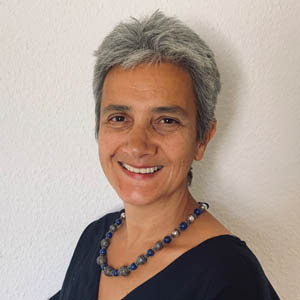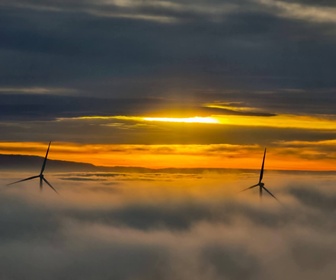 At a joint conference on nature-positive offshore energy infrastructure hosted by the Renewables Grid Initiative and WindEurope, the Offshore Coalition for Energy and Nature (OCEaN) confirmed that it is possible to speed up offshore wind and related electricity grid deployment while protecting and restoring nature.
At a joint conference on nature-positive offshore energy infrastructure hosted by the Renewables Grid Initiative and WindEurope, the Offshore Coalition for Energy and Nature (OCEaN) confirmed that it is possible to speed up offshore wind and related electricity grid deployment while protecting and restoring nature.By Antonella Battaglini, CEO, Renewables Grid Initiative, Germany
Offshore wind and related electricity grid infrastructure are imperative to reach Europe’s climate targets and strengthen its energy independency. Simultaneously, marine ecosystems – which are already vulnerable – must be protected from further stress caused by climate change and the pressures of traditional and new economic activities. Thorough planning is vital to allocate space to those activities which are most needed and least detrimental to the environment, in line with climate, conservation and restoration objectives.
The REPowerEU plan calls on member states to identify dedicated areas in which renewable energy sources can be built with low environmental risk. In those areas, permitting procedures could be fast-tracked. For marine areas, maritime spatial planning (MSP) is already the essential tool for an integrated spatial allocation of human activities in line with European Union (EU) economic, environmental and social objectives. It enables inclusion and assessment of a complex variety of aspects, such as interactions between traditional and emerging sectors (i.e. offshore renewable energy (ORE)) and environmental protection and restoration needs. Therefore, the members of the Offshore Coalition for Energy and Nature (OCEaN) strongly support an improved, robust and timely MSP process. This will speed up ORE, support the decision-making process for spatial allocation, and also reduce investment risks and project delays. In this context, the OCEaN members recommend a number of principles to be considered by all EU member states:
Improve application of an ecosystem-based approach in MSP. An ecosystem-based, integrated planning approach is needed to allocate space for renewable offshore energy production in consideration of nature protection needs and other existing activities at sea. If applied correctly, MSP can enable such integrated planning, identify less sensitive areas suitable for energy infrastructure deployment, and contribute to reconciling often conflicting interests and the needs of marine users.
Complement environmental and socioeconomic assessments for spatial designation with sensitivity mapping. Spatial designation must be based on robust impact assessments to allow activities to be located in areas where no significant impacts on the marine environment will occur and to balance the various economic interests at sea. Sensitivity mapping tools can inform planning decisions, along with socioeconomic assessments, in order to identify best-suited locations for nature protection and energy infrastructure and define mitigation and compensation measures. Member states and the European Commission (EC) should facilitate and enable the application of sensitivity mapping across national, regional and sea basin levels and further explore tools to analyse socioeconomic aspects.
Enable cross-border collaboration. Sea basins should be treated as connected entities, creating an added value of basin-scale planning that must be considered. Therefore, the EC and member states should facilitate and implement regional stakeholder cooperation to enable large-scale compensation, mitigation and restoration measures and harmonised and cross-basin data sharing.
Continue to implement EU nature law to a high standard. The ‘imperative reason of overriding public interest’ permits project development despite impacts on protected habitats or species, in cases of outstanding importance for the public. This is already allowed by EU nature law. Member states need to carefully consider its application on a case-by-case basis after demonstrating such an exception’s necessity and the lack of alternatives, alongside mitigation and compensation measures.
Improve stakeholder involvement and create benefits for local communities. As per EU law, member states must engage with national and local stakeholders when developing their maritime spatial plans. Early-stage and meaningful engagement of civil society must be ensured to gain public support. Furthermore, models for the creation of local benefits are an emerging trend across Europe. They should be further developed together with local communities.
Adopt a long-term perspective. Incorporating a long-term perspective enables planning reliability, increases planning efficiency, optimises overall resource and spatial use, and reduces impacts on nature. As changes in the marine environment may only be visible after a certain amount of time, the planning system needs to be flexible enough to respond to such new insights. Thus, a learning planning system and adaptive management are essential for ecosystem protection and should be embedded in all maritime spatial plans.
A longer document with 10 recommendations can be downloaded at: https://offshore-coalition.eu/documents/ocean-package-october-2022.pdf
OCEaN brings together NGOs, TSOs (transmission system operators) and wind industry organisations from across Europe. Together they work towards a sustainable deployment of offshore energy and grid infrastructure, while ensuring alignment with nature protection and healthy marine ecosystems. OCEaN is funded, convened and moderated by the Renewables Grid Initiative.









